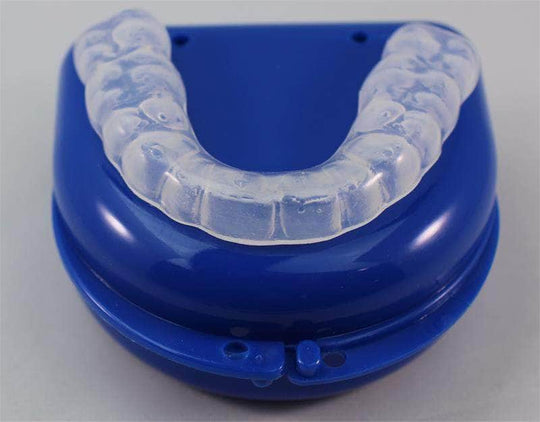If you're struggling with bruxism, finding a solution to get a good night's sleep and protect your dental health is important. Not only can bruxism cause discomfort and damage to the teeth, but it can also disrupt sleep and lead to other health issues.
One effective solution is to use a dental night guard. A dental night guard is a removable appliance that fits over the teeth and creates a barrier between the upper and lower teeth. This helps to prevent grinding and clenching and allows jaw muscles to relax.
But with so many dental night guards on the market, how do you choose the right one for you? Let's take a look at the different types of dental night guards and how to choose the one that will best meet your needs.
Custom-fit dental night guards are made specifically for your mouth and offer the best fit and comfort. They are made by taking an impression of your teeth and creating a mold, which is then used to create the night guard. While they are more expensive than the other options, they are well worth the investment as they are more durable and comfortable to wear.
Boil-and-bite dental night guards are made from a thermoplastic material that you can mold to fit your teeth by biting into it after boiling it in water. While they offer a better fit than pre-formed night guards, they are not as comfortable or durable as custom-fit ones.
Pre-formed dental night guards are the least expensive option and are readily available at most drugstores. They are pre-formed to fit a general tooth shape and size, and while they may work for some people, they often don't provide a good fit and can be uncomfortable to wear.
In addition to using a dental night guard, there are other things you can do to help manage bruxism and get a good night's sleep:
Reducing stress: Stress and anxiety can contribute to grinding and clenching, so finding ways to manage stress, such as through relaxation techniques or counseling, can be helpful.
Avoiding caffeine and alcohol: These substances can stimulate the muscles of the jaw and lead to grinding and clenching.
Exercising: Regular physical activity can help to reduce stress and improve sleep.
Using a humidifier: Dry air can cause the tissues in the mouth to become irritated, leading to grinding and clenching. A humidifier can help to keep the air moist and reduce irritation.
By using a dental night guard and incorporating these other strategies, you can help to manage bruxism and get a good night's sleep. Don't let the puzzle of bruxism keep you awake any longer. Take control and find the solution that works best for you.
